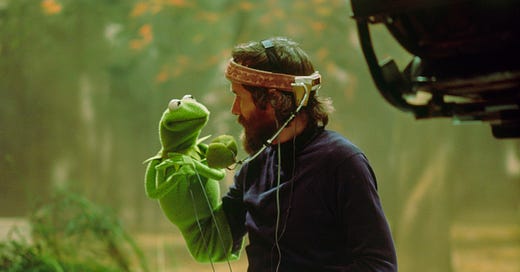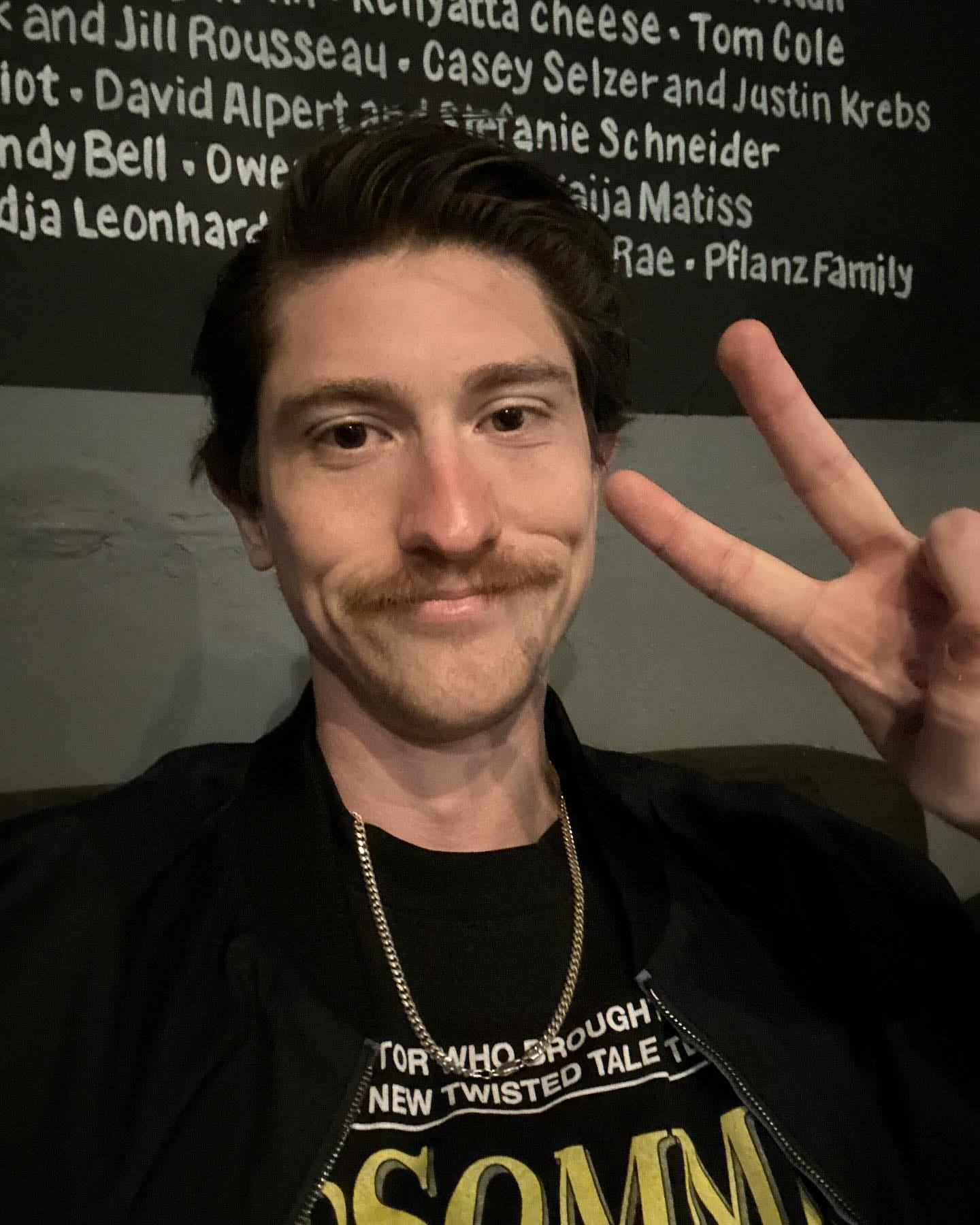Puppets provoke some profound questions
An outtake with Ben Firke, and an afterthought on The Muppets & Jim Henson
Welcome to Human Pursuits, the column that features need-to-know names and stories in media and other creative spaces. Today, an outtake from my conversation with Ben Firke, and an afterthought on The Muppets and Jim Henson.
Read part one of our conversation HERE.
Outtake
ES: RICH BEYOND OUR WILDEST DREAMS doesn’t exactly position venture capitalists as people to be admired. But I find myself wondering if there are any business or thought leaders you do draw inspiration from?
BF: Does Karl Marx count? Laughs. I don't really admire a traditional business or thought leader, but I have a lot of love for Meghan Finn, the Artistic Director of The Tank, where I've produced most of my plays in NYC. We have a working relationship going back to around 2018, and she is a genuine hero of mine. Not only has she helped me directly with my plays, but she and the rest of the Tank staff are load-bearing pillars of the entire New York theater community.
As an independent artist, the most valuable thing you can have is a place to, for lack of a better term, fuck around and fail and learn. It's very difficult to do that these days without losing your shirt financially, and The Tank is a place where you can take creative risks and receive institutional support on any budget. Spaces like The Tank and Re/Venue, which she also runs, are vital, and Meghan is committed to allowing exactly the sort of small-scale, large-ambition work that I was talking about earlier.
ES: Thinking about it now, there's a certain Bo Burnham-esque quality to your writing. Was that intentional? Do you fuck with Bo?
BF: I haven't seen much of his work, but I am a huge fan of that Vine he did where he says "Is there anything better than pussy? Yes, a really good book!" That phrase pops into my head a lot.
ES: The middle section of RBOWD is a series of vignettes that are presented in a different order every performance, with the audience pulling ping-pong balls from a jar to determine what comes next. I love the random nature of this. Why were you interested in slicing the script up this way?
BF: I'm obsessed with work that balances on a knife-edge between stupid and clever, or "low" and "high" art. I've wanted to play with the concept of indeterminacy for a long time because I think it captures that paradoxical low-high spirit very well. In college, I took a course on experimental music and was fascinated by works by John Cage, where he'd present these little pieces of a work to his piano player, David Tudor, who had to figure out which order to play the pieces, or what time signature, or tempo. The idea of the composer giving up aspects of control of their piece fascinates me. The Fluxus collective did similar stuff, and William S. Burroughs did something similar with the "cut-up" technique. But also, on a more populist/less highfalutin level, I've become a huge fan of The Grateful Dead, whose whole deal was never playing the same show twice.
In terms of this play itself, the randomness serves a purpose and isn't just a novelty. I wanted to make a genuine experiment. Can these vignettes form different comprehensible story arcs in different orders, or do they remain disjointed? Sometimes they seem to form a story, but other times they don't. I wanted to capture aspects of the psychedelic experience, where all these different seemingly unconnected moments begin to take on meaning when viewed together, like a photomosaic. It’s also meant to convey the sense of psychosis that Colby undergoes as well. I’ve thankfully never experienced psychosis, but I know people who have, and I’ve had my issues with anxiety in the past, where your thinking gets kind of scrambled in a way similar to a psychedelic trip. Overall, I’m trying to be more expressionistic in reflecting my main character’s interior thoughts in onstage action.
ES: The play also involves a puppet. Are you into Jim Henson? I read his biography a long time ago, I think he was cool as shit.
BF: I love Jim Henson. I think Muppet Treasure Island is a classic of cinema, as are all the other Muppets films and Fraggle Rock. Argo, the imaginary friend character you mentioned, who shows up in the final section, is very Jim Henson-inspired. He's actually my childhood puppet. In the 90s, my mom bought this kit to make your own Muppet, but she's an artist herself and made her own unique design, only keeping the fabric and the plastic eyes. So thanks, mom!
There’s a Jim Henson museum in Atlanta that I’m looking forward to seeing. I think of him as one of America’s greatest artists, especially since I’m a huge fan of paradox/contradiction. In this case, he’s a countercultural artist who clearly smoked a ton of weed, and yet he makes wholesome entertainment that families can enjoy and pass down through generations. His work appeals to 3-year-olds and adults. He made commercial art that still rakes in millions in merchandising and licensing deals, and also made some of the greatest public television in history.
As for why we used puppets, pragmatically, it's a way to bring in other characters to the one-person show without requiring another human actor onstage. They fit the hallucinatory vibe. And they're symbols of control, which is sort of the theme of the third section of the play. Do you let your job/career/The Marketplace control your life, or do you follow your innermost fantasies and dreams, or do you take charge of your life and pursue human connection and friendship outside of yourself?
Puppets provoke some profound questions, but they’re also silly little whimsical fabric creatures. Maybe I should just go all-in on puppets for my next show. It's inevitable, really.
Afterthought
I hadn’t read the script before I sat down to interview Ben about RICH BEYOND OUR WILDEST DREAMS, so when he suggested forwarding me a copy after our chat, I was happy to oblige. The above was sent to me Friday, and I think adds colour and texture to the first part of our conversation.
As a student of How Long Gone, I appreciate looser interviews and people who are able to pose their conversations within the natural flow of conversation. I tell myself this enables me to serve as a proxy for the audience. I know as much as you do.
But sometimes knowing the source material fosters a deeper connection. I wouldn’t have guessed, for example, that Ben liked Jim Henson based on the little information I knew about him. In that regard, his answers felt like a revelation. It helps that Ben is just as thoughtful and engaging over text as he is IRL.
For a long time, I only wanted to chat with people “in person” (a.k.a. over Zoom) because I thought it yielded better answers. But the more I do this, the more I realize there’s no one-size-fits-all solution. Maybe it makes sense to ask all your questions in one go, but maybe not.
Half the fun is knowing you have the freedom to do things your own way. To be a piece of fabric capable of provoking profound questions.






